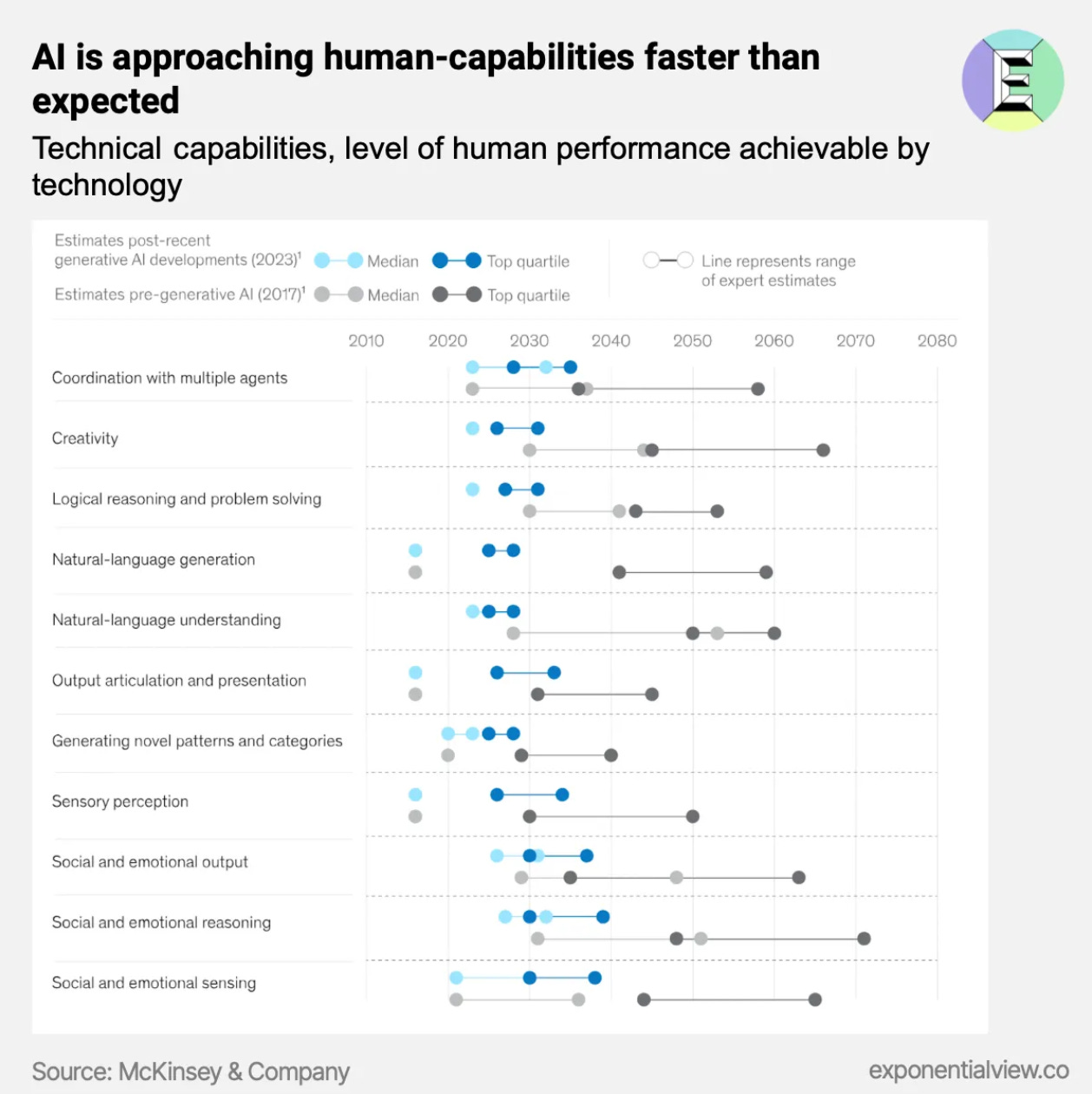🔮 Exponential retrospective — September in 6 charts
A month is worth years in times of exponential change
Hi,
Every first week of the new month, we look back at some of the picks we made in our editorial to understand what was going on. In today’s retrospective edition, we look at…
China’s vigorous EV market as a threat to otherwise solid Tesla,
New milestones in AI development, and how it increases time-space compression,
An overview of big tech’s investments in generative AI YTD.
China’s electric century
We started September off with the news that China has potentially already reached peak gasoline demand, two years ahead of schedule, according to the country’s top oil refiner Sinopec. BloombergNEF predicted it to peak next year.
How did this happen? Thank robust electric vehicle sales. Passing this milestone reflects the vigour of China’s EV ecosystem, which has helped propel the nation to its current status as the world’s top car exporter.
Western nations’ automotive market share is likely to decline, unless other automotive heavyweights (such as those in Europe) can catch up to the pace. But it seems unlikely that either Detroit or Deutschland will cut the mustard anytime soon.
In the latest twist in the competition for market dominance, Chinese BYD is likely to overtake Tesla in Q4 as the world’s biggest seller of EVs.
As we wrote in EV#438
China’s ascent is no accident; the government has given unwavering regulatory and financial support for EVs for more than a decade. The latest demonstration of this commitment, earlier this year, is a tax incentive package for EVs worth $72.3 billion, its largest ever.
AI & time-space compression
On 10 September, we wrote about the McKinsey analysis citing that the estimates for the time it will take until software systems can reach human-level performance have fallen dramatically.
Over the past year and a quarter, the consensus for the first weakly general AI has come forward from 2042 to 2027, as evaluated on Metacalculus.
Five days later, Azeem Azhar discussed two studies that suggest, in certain domains, AI already outperforms humans in creative tasks.




